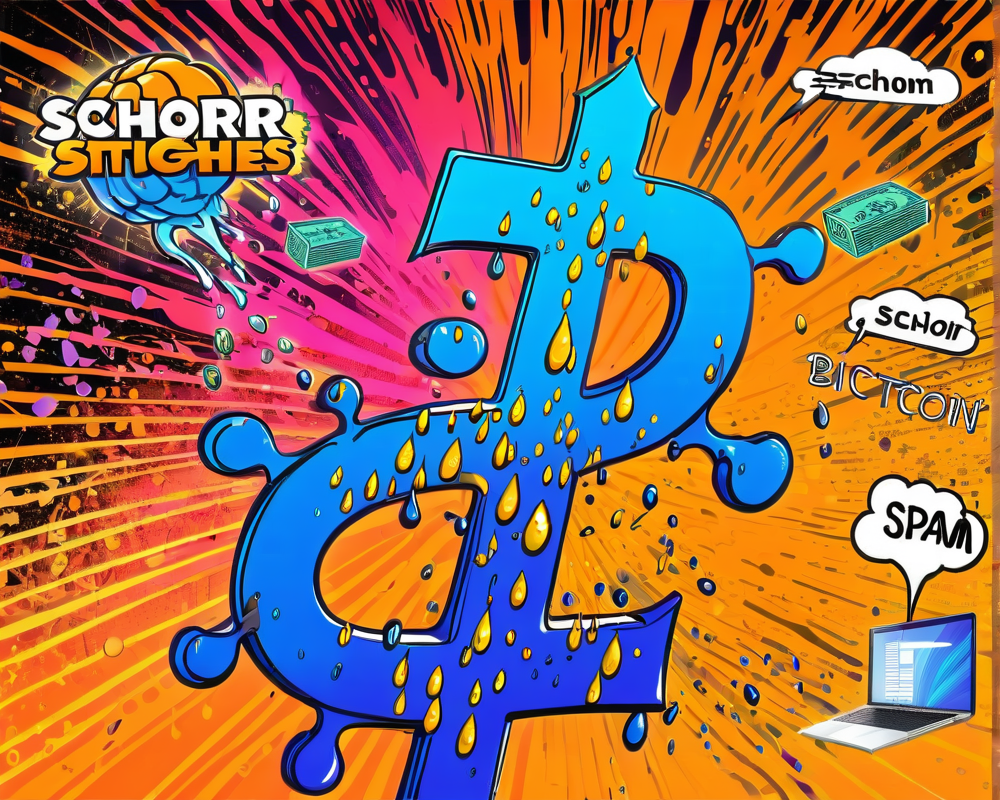Understanding the Dilemma of Mempool Bloat
In the wild west of blockchain, unconfirmed Bitcoin transactions can pile up faster than laundry on a Sunday. This mempool congestion is a headache, resulting from a mix of multiple transactions jam-packing the blocks and some really enthusiastic spammers. Let’s face it, while Bitcoin is designed with security in mind, it has its weak spots, and no one likes paying exorbitant fees just to get their transaction through the pizza delivery lane.
Meet Schnorr Signatures: The Unsung Hero
Enter Schnorr signatures! This nifty little invention promises to save both space and sanity. Sam Wouters, a Bitcoin and blockchain aficionado, argues that their implementation could help mitigate mempool bloat. But how? By allowing multiple outputs to share a single signature, Schnorr signatures reduce the block space consumed by multi-output transactions. Essentially, they’re like that family member who piles everyone’s dirty dishes into one bowl to save space in the sink.
A Costly Game of Spam
Imagine a spammer trying to fill the transaction queue with their digital foot-long sandwich order. If each transaction could sip from a single signature rather than requiring a multi-signature buffet, they’d have to throw more cash at it to achieve the same results. Less space for their antics translates into less chance for them to mess things up for everyone else. It’s like a digital bouncer at the door of the club—if you can’t afford to get in, you’re out!
Multi-Signatures vs. Single-Signatures: The Showdown
So, what’s the deal with multi-signature transactions? In a nutshell, they add bulk to the blockchain, kind of like an overstuffed burrito. Schnorr signatures, however, come to save the day by making multiple outputs appear as a single signature. Wouters argues that if one person is sending funds from multiple sources, they shouldn’t have to fill up a truckload of signatures. Simplifying this with Schnorr signatures not only plays nice with space but also keeps transaction costs down.
The Bigger Picture: Network Health
The Bitcoin network’s health is vital, not only for individual users but for the entire ecosystem. Before the New York scaling agreement spearheaded by actors like Barry Silbert, network congestion became a tactical play. High fees and longer transaction times were intentionally engineered to create pressure for a block size increase. Schnorr signatures could be the tool that restores harmony and balance—allowing transactions to flow more freely, steering us clear of chaotic traffic jams in the mempool.
Final Thoughts: Embracing Innovation
As we very well know, the world of blockchain is ever-evolving. Innovations like Schnorr signatures could pave the way for a more efficient future, giving us a sustainable solution to manage network traffic and keeping fees in check. It’s time to cheer for technology that steps up to the plate when spam tries to steal home. Ultimately, fewer headaches on the blockchain leads to a more enjoyable experience for all Bitcoin enthusiasts!




